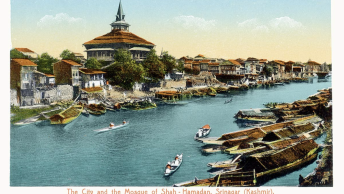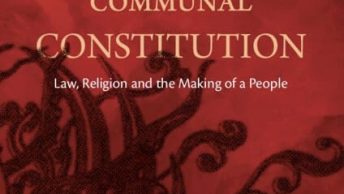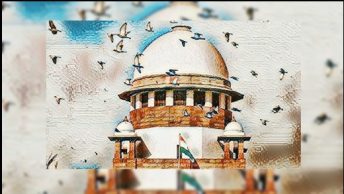Ed Note: As part of our New Scholarship Section, we have been inviting discussants to respond to specific articles. This Response Piece is part of a series of posts indexed here discussing the public law themed articles featured in the recently released Issue 2 of the 2020 Volume of the Indian Law Review. We are grateful to Muhammad Mutahhar Amin for accepting our invitation to respond to the paper by Zaid Deva. One can read the short summary of the paper by Zaid Deva here.
The unilateral and, in most political and legal analysis, illegal actions of the Union government on August 5th last year have resulted in a renewed focus on Kashmir. During this one year, the issue of Kashmir has received significant international attention. At the same time the discourse on Kashmir has been enriched by numerous papers and articles, detailing different aspects and nuances on this longstanding issue which were hidden or were conveniently forgotten. Mr Zaid Deva’s article is continuation of this trend. It is, however, refreshingly unique in its content and argumentation.
The article provides a legal view on the debate on the legal status of Jammu and Kashmir Constitutional Order enacted in 1954, which Deva calls the Basic Order which, among other things, enabled special privileges of the residents of Jammu and Kashmir (“J&K”), popularly known as Article 35A. Although, the article situates itself after the event of abrogation, the tone and tenor of the article makes it clear that the article was conceptualized as a response to the legal challenges to Article 35A in the Supreme Court of India. The insertion of August 5th decisions is an after-thought, which is also evident by a limited engagement with those events, mostly as a postscript (from page 32-34 of the article).
Nonetheless, that article does provide interesting and novel observations, which make this attempt a much needed intervention. There are also many other reasons for the uniqueness of this article. To begin with, it is the very frame of argumentation. While most analysis of Article 35A, situated it in the context of Indian constitutional and constitutional order, Deva courageously takes a diametrically opposite position. He argues that the Basic Order was formulated by the ‘sovereign’ Constituent Assembly of Jammu and Kashmir (“J&K CA”), with the Indian Parliament and President mainly acting on the binding advice from the J&K CA, as stipulated by Article 370 (page 21 of the article). Also, the author states that no power vested in the Union with respect to Kashmir was original or inherent, but any power it possessed was only derivative, derived from the State and the Instrument of Accession (page 14 of the article). This radical reformulation, thereby, diminishes the very role of Indian State, Parliament or President to effect any kind of change to such order, with even amendments to such order since 1957, have been termed as illegal by Deva, influenced by renowned scholar A. G. Noorani (page 25 of the article). The author very convincingly argues that the challenge to Article 35A being an ‘illegal amendment’ by circumventing the exclusive power of the Parliament to amend the Constitution, does not hold as the Basic Order was not an amendment but an ‘enactment,’ as Indian Constitution and its laws did not apply to the state prior to such Basic Order (page 28-29 of the article).
The author also, painstakingly, dissects the provisions of Article 370, to put forth a powerful perspective on the scope on Indian State to change the constitutional relationship between Kashmir and India and the role of the State government of J&K within such a project (page 19 of the article). The arguments put by the author in this regard are substantially fresh and path breaking. Keeping in view these arguments of the author, it is evident that even the State government did not possess the authority to alter contents of Article 370 and the Basic Order, once the J&K CA ceased to exist. The author also examines the temporary nature of Article 370, by raising an important point to factor in not just ‘whether’ the Article 370 was temporary but also ‘what’ exactly was temporary in this Article (page 20 of the article). The paper also reveals important legal anecdotes such as Pakistan’s legal objection to the accession was also based on the issue of the Standstill Agreement (page 9 of the article) while it was only in the ‘Indira-Abdullah Accord of 1975’, that J&K was for the first time referred as a ‘constituent part of India’ (footnote 109, page 25 of the article).
The paper, in addition, provides a comprehensive and exhaustive analysis of the contextual, historical and legal realities surrounding the accession of the State with the Indian Union. It brings to fore the proceedings of the J&K CA which provide a novel insight on the corresponding political and legal circumstances. The sessions of the J&K CA have not been engaged deeply. Even this paper only engages with it tangentially, nothing more than mere reference to some quotes, with little further explanation relegated to the footnotes. The hope remains that these changed circumstances would not let this instructive attempt by Deva to be the last.
While this article remains a cardinal contribution, there are certain aspects that do raise certain questions, especially the aspect of sovereignty. Sovereignty remains one of the most contested concepts of political theory, and Deva’s article uses it in a way which does evoke a need to seek clarification. With the author clearly arguing that a de jure sovereignty remained with the state of J&K, even after signing the Instrument of accession, the question remains how was such sovereignty supposed to be safeguarded? Considering that the Instrument of Accession forced the Maharaja, under duress and facing revolt, to accede defence and foreign affairs, two cardinal aspects of sovereignty. Further, once such sovereignty is clipped away through constant and persistent efforts of the Indian state, resulting in a de facto sovereignty over the area, how is the de jure sovereignty then supposed to be exercised? The core assertion that I wish to put forth that if the ‘will of the people’ is reduced to just a legal category of sovereignty, as opposed to an inalienable right, it is imperative to also re-conceptualize the exact manner of the Indian control over Kashmir. If, as author believes, military control did not amount to sovereignty, there needs to be a clear cut exposition of the relationship through some other category, rather than as just a mere transfer of legislative authority (page 10 of the article); suzerainty, maybe? I am putting forth such a category since the very landing of the Indian Army in Kashmir reshaped the contours of the Indo-J&K relationship, and should also be incorporated into any legal analysis. Failure to incorporate such might reduce the analysis of any legal term or document as procedural or formal rather than substantive, even if claimed otherwise (page 33 of the article).
The paper, nevertheless, makes possible a radical re-imagination of the constitutional relationship between India and Kashmir, which puts a new light on the scope and nature of the actions taken last year. The paper forces us to extract any assessment of any action on Kashmir, including the one of abrogation, from the confines of Indian constitution and constitutionalism. The question of Kashmir cannot be situated in the confines of the Indian constitution, and as such the decisions on Kashmir are not ultra vires on account of not adhering to any basic structure doctrine. Neither does the issue have any similarity with other similar looking provisions in the Indian constitution. Thus, the act of abrogation is not reneging of a promise or of constitutional impropriety; but it is a matter of international law. It is a constitutional fraud that restructures the constitutional relationship between Kashmir and India, without any participation of the people of Kashmir. Actually, more like, with Kashmiris imprisoned in their own land. This paper and its arguments, thus, not only brings forth new dimensions of the issue but provides arguments which can benefit the cause of Kashmir and Kashmiris, both nationally and internationally.






Thank you so much for the sharing. All contents were expressed in a clear n simplified manner n it was meaningful too. You are a marvelous writer. Good work!
Can you be more specific about the content of your article? After reading it, I still have some doubts. Hope you can help me.
Your point of view caught my eye and was very interesting. Thanks. I have a question for you. https://www.binance.info/en-IN/register-person?ref=UM6SMJM3